
You are logged in as
Logout
You are logged in as
Logout
Dear Parents and Caregivers
I can’t emphasise enough just how important parents’ help is to their child’s successful navigation through the ‘NCEA waters’, particularly at this year level. Taking interest in what they are doing, being aware of when they have assessments due and tests to sit, helping them to manage their commitments, both in-school and out-of-school, checking on their results and progress towards their gain of NCEA, and maybe keeping them honest with the setting of some academic targets is so helpful for all students.
In this newsletter, I begin by reminding you about a couple of our key policies regarding internal assessment – extensions and the provision of medical certificates and authenticity with particular emphasis on how ChatGPT should be used with students’ learning and assessment. I’ll also round off the details of the additional awards that are available in NCEA Level 1, specifically course endorsement, and there are a few reminders about NCEA matters that it will be good for you to know about.
Our important mid-year academic reports process is under way, during which time all students will have a report written about them by each of their teachers, and a summary comment from their tutor. In this newsletter you can read about what we report on and what you can expect in your child’s report feedback – the timelines are tight, but we stick to them so that we can report to all parents by the first week of the July holidays.
So, you can see just how busy teachers and students are with their learning and their assessment work in NCEA at this time. At all times, please feel free to contact me via email with any questions that you may have about NCEA at DBV@stac.school.nz.
Kind regards
David Bevin
Head of Teaching and Learning

We have clear rules and procedures for students to follow covering many matters including student absence from an internal, late submission and breaches of authenticity and these are all detailed in the student copy of the ‘Rules and Procedures’. All students received their own copy of the ‘R & P’ in March in their tutor times; they must read them as the rules must be, and are, applied in all assessments.
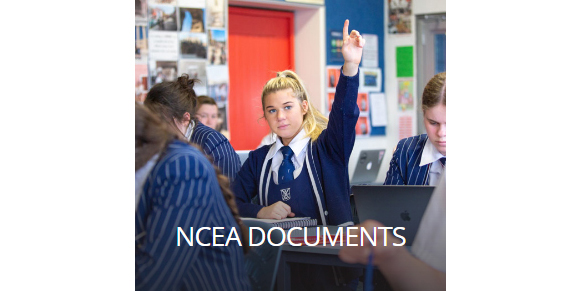
Issues around extensions and absence from assessments occur every year and have begun to occur already, so it is important for you to know that we have clear processes and rules for managing those issues so that assessment is fair to all students. Students simply cannot just hand in an assessment late or not turn up to a test without having a valid, and approved, reason. They must follow our procedures in this area.
Late last term, all NCEA-level students and parents received an email from me about how we manage this issue. In it, I outlined the following information, which is also contained in the student ‘Rules and Procedures’.
It is very important that you meet deadlines for NCEA internal assessments. If you are not able to meet a deadline, you must have a very good reason and are required to go through a formal process of applying to your teacher – and you are required to do this in a timely manner, i.e., before the deadline. This is the process that you MUST follow for any internal assessment; if you don’t, you will not be entitled to an extension. Staff know about this process and know that they must enforce it on each occasion.
There are several steps for you to follow with each internal assessment.
|
Request Type |
Process that must be followed by the teacher |
|
If you have COVID and are therefore isolating |
The extension request is automatically approved. Negotiation of a revised final date will be done by the teacher and you when you are well enough to resume schoolwork. |
|
If you make a request on medical (non-COVID) grounds |
The extension request will be approved subject to the provision of a medical certificate (this must be provided to the teacher and in a very timely manner). The final date is negotiated by the teacher and you. |
|
All other requests |
Subject to there being valid grounds for a consideration (e.g., a school field trip/sports event), negotiation over the submission date may be possible. |
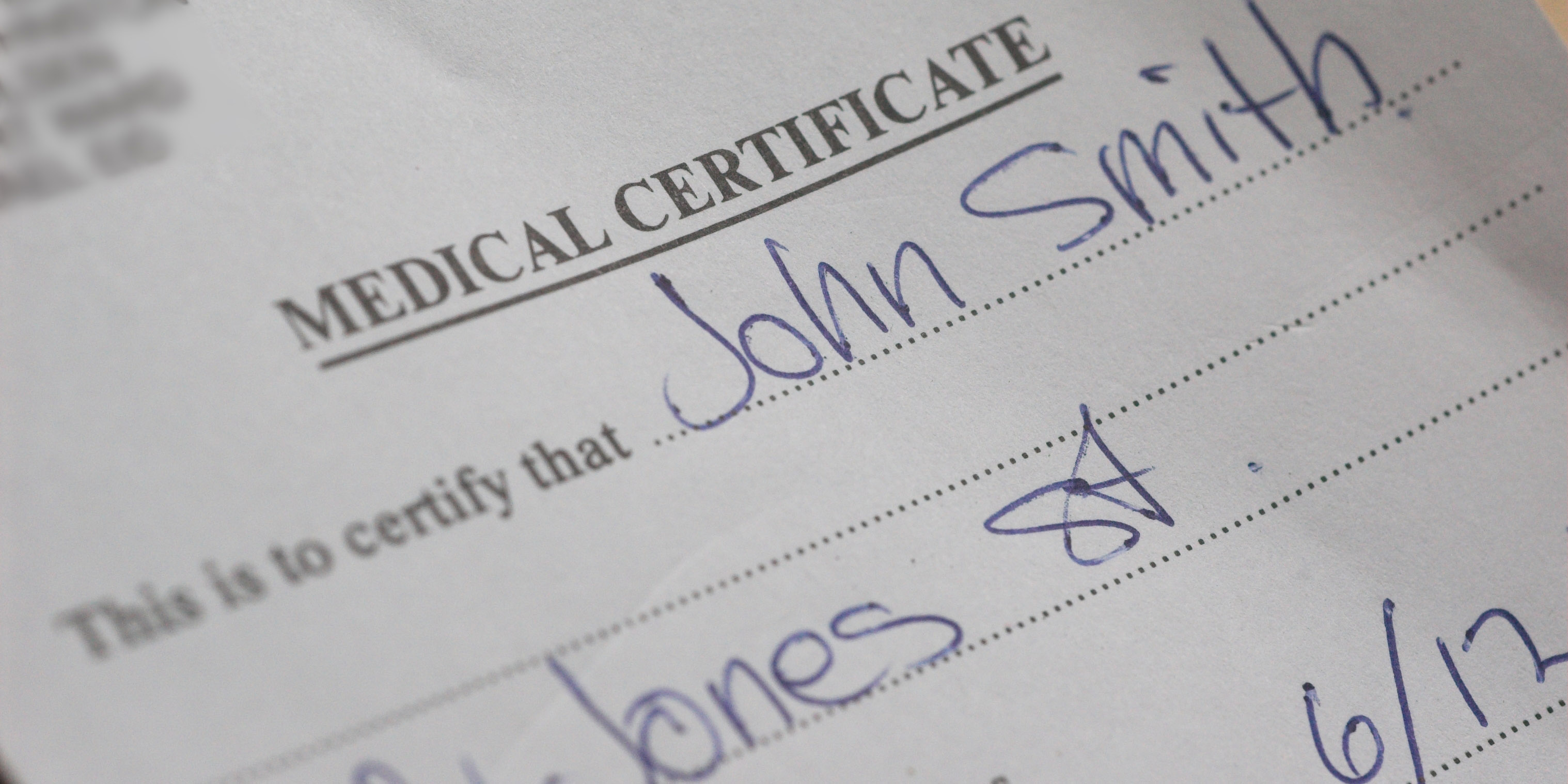
I received this email from a student last week….
Reason for Extension: Away sick on Tuesday and Wednesday and wasn’t able to hand it in on the deadline.
In the extensions on medical grounds information, you will see clear reference to medical certificates in Step 3 above. If a student is sick (as is the case in this example), they must get a medical certificate and provide it to their teacher as part of their application for an extension. If they do not, they will not have an extension. This is non-negotiable on the College’s part. My response to this above example was NO EXTENSION because, quite simply, the student did not provide a medical certificate. Of course, given the nature of COVID-related illness and the required isolation period, in that circumstance, a medical certificate is not required.
Greetings! We are delighted to present our school parent newsletter, dedicated to discussing our decision not to incorporate ChatGPT into NCEA internal assessments. Join us as we delve into the reasons behind this choice, highlighting the importance of human interaction, authentic learning experiences, and fostering critical thinking skills in our students. (Ref: ChatGPT)
Last Friday, Head of Innovative Practice and Strategy, Mrs Hutterd spoke to Year 11 students about these two things at their Middle School Assembly. Parents will likely be aware of ChatGPT and of the discussions around its use in assessments in schools and at tertiary level. Mrs Hutterd’s presentation was designed to clarify our rules about the use of Chat GPT (as an example of AI [artificial intelligence]) in internal assessment.
You are encouraged to view the presentation that was used by clicking on this link.
In the NCEA ‘Rules and Procedures’ booklet, the rules regarding ‘Authenticity’ have been very clearly explained, along with the ‘penalty’ for a breach in this area. In addition, late last term, students received a link to an online statement that they were asked to digitally sign to confirm their understanding of, and agreement with, our rules and processes in this area.
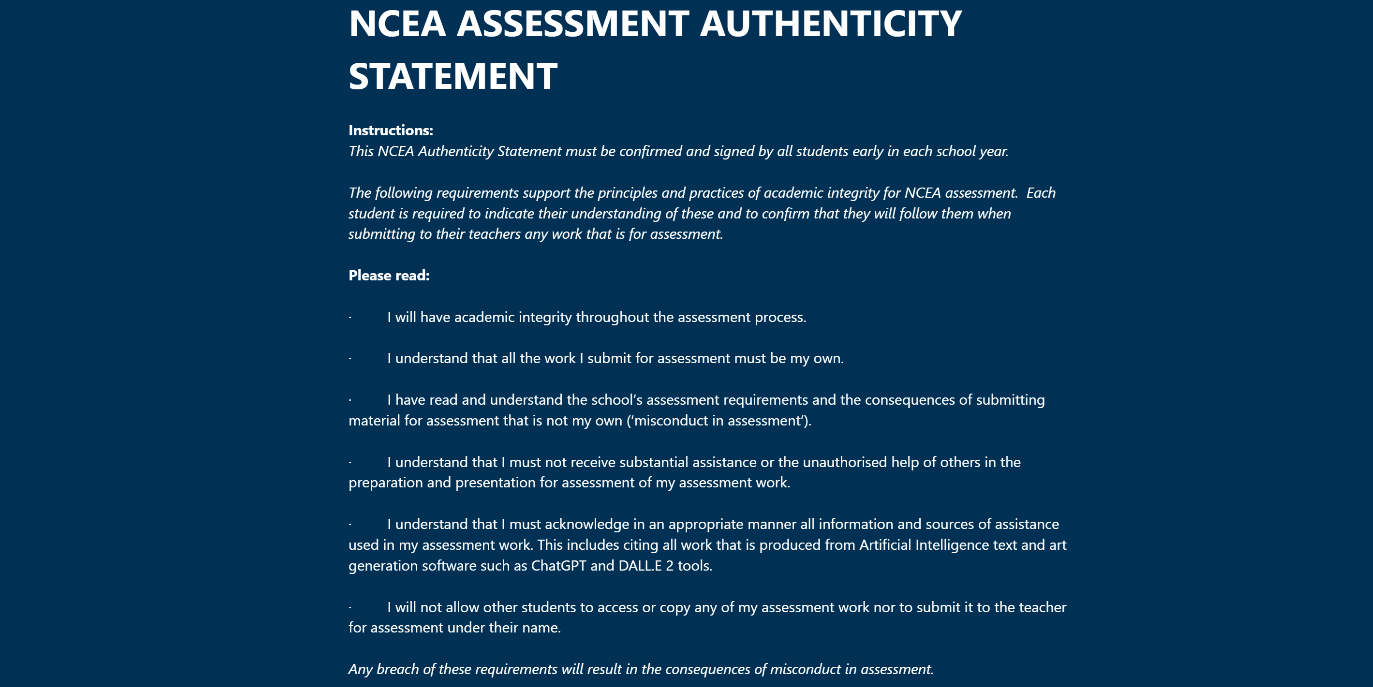
This is what we expect of students in this important area and is how the College reaffirms the rules relating to academic integrity.

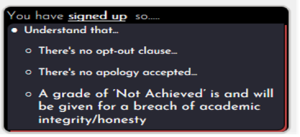
What is to come in this area?
Of course, we have our rules as outlined above but we also consider that we need to help students to know just how they can legitimately use AI in their learning. Over the rest of this term and into the next, Mrs Hutterd will be working in this area with Year 11 students in their study times, in particular, teaching them how to reference sources.
The successful management of NCEA relies on both teachers and students following the rules regarding internal assessment. Basically, we have 4 ‘golden rules’ that students must follow if they wish to successfully accumulate their grades and credits towards their NCEA achievement targets. The rules are detailed in the ‘Rules and Procedures’ as follows in this screen shot.
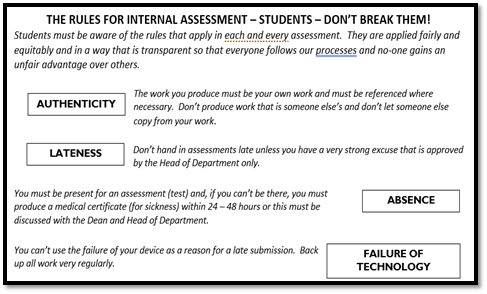
The rules can be further summed up this way:
Students should note that it is very rare for us to vary these rules and, unless there are exceptional circumstances that apply to a particular situation, these rules will be fully applied.
Why we have these rules
Academic integrity underlies the rule regarding authenticity. The rule regarding lateness requires students to meet deadlines and to not be slack about doing so. If a student is legitimately absent, they must prove that there is an acceptable reason for being so and that must be attested to by an independent professional such as a doctor. Finally, students are typically very capable of blaming their devices and various systems so we simply put the onus on them to ensure that their device is functioning well at all times, and we require them to back up their work so that, if there is a system failure, they can still retrieve it and submit it on time. In short, these rules are about ensuring honesty in our system; these rules have proven to be very robust and effective and provide a great deal of integrity in our NCEA process.
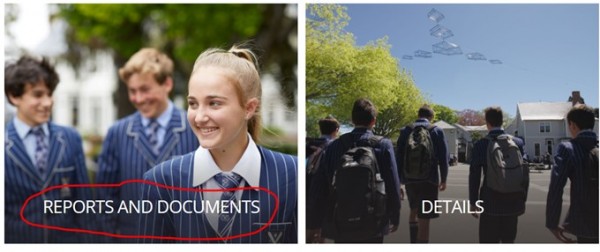
It’s very relevant at this point to remind you of the ‘one-stop shop’ nature of our Community Portal. Parents can access a lot of information provided by the College about attendance, assessment, and reporting. When you click on the Results tab on the right of the screen, you will be able to access both the Fortnightly Feedback scores and the ‘powerful’ and dynamic NCEA Current Results Summary. This document enables you to see the grades that your student gains over the course of the year in their various internal assessments and practice/indicative assessments and their progress towards Level 1 NCEA awards such as certificate and course/subject endorsement. You no longer have to ask your child to tell you what their assessment results were because you can see them through your own login!
At this stage of the year, probably only a few results will show but as the year progresses and internals are completed, it will become very interesting reading that you will not need to ask your child to show you – there’ll be no ‘hiding’ from results! The summary table ‘NCEA Results Summary’ provides an excellent summary of ‘Achievement / Merit / Excellence credits’ that are being gained and so shows a student’s progress towards a Merit or an Excellence endorsement.
In my next newsletter, I’ll outline this more fully as it really comes into its own in Term 3 in particular.
This year, students in these subjects are participating in a pilot of the new NCEA Level 1 standards which is a part of the roll-out to schools of all subjects from the start of 2024 (part of the NCEA Changes process). One of the key changes in the NCEA Review programme that led to the Change process was to reduce the amount of assessment (internal and external) in subjects to allow for more time for learning. Subjects have fewer standards for assessment, typically 4x5-credit ones, with two of them being internal and two being external (not necessarily examination-based standards). As such, internal assessments may take longer to complete with the results not being notified until later in a subject’s assessment programme. It’s good to be aware of that and to not be concerned about ‘gaps’ in results when checking to see how your student is progressing and achieving in these two subjects.
To help you a little bit more, in our Year 11 NCEA Rules and Procedures document, I have provided a model that I hope very well describes for you in diagrammatic form NCEA Level 1.
Please click here to access: NCEA Documents
Course Endorsement is usually harder to gain and requires a mixture of internal and external assessment success. It is an award that is applied to individual subjects that are run by an individual school. Again, Merit and Excellence grades and their associated credits are accumulated.
To gain Excellence endorsement in, say, Mathematics (as an example), a student must gain at least 14 credits at Excellence level BUT part of this must come from at least 3 Excellence credits in an internal and at least 3 Excellence credits in an external.
To gain Merit endorsement in, say, English, a student must gain at least 14 credits at Merit or Excellence level BUT part of this must come from at least 3 Merit or Excellence credits in an internal and at least 3 Merit or Excellence credits in an external.
To gain Achieved endorsement in a subject, as part of the 14 credits gained, a student must have gained at least the level of Achievement in standards while still not meeting the requirements for Merit or Excellence.
The ‘external’ requirement means that the examination (or, for example, an externally assessed portfolio such as in Visual Arts) has extra importance in course endorsement.
A note about 11PHED – Physical Education for NCEA. Because there are no external standards for this subject, so that a course endorsement can still be gained, the external credits requirement is not used.
Course endorsement is only awarded in the academic year (that is, it can’t be accumulated over more than one year).
These students gained up to 20 Level 1 credits from their Science course last year. The good news is that their credits are added to their Level 1 total this year. Any Excellence or Merit credits gained last year will be added to their totals this year and so contribute to their overall endorsement total for Level 1.
A small number of students will have a course with sufficient assessment opportunities for them to gain both Level 1 and Level 2 in the same year – this will usually only be students who are doing three subjects at each level this year. It is possible for them to gain not only the NCEA level qualification but also both certificate endorsement awards (remember that they carry forward any Level 1 credits they may have gained in Year 10 Science – but not for course endorsement this year). If a student would like to know more about this, they should contact me directly so that I can provide more details about this, it can be a bit complicated for busy parents to absorb.
The nature of the NCEA structure means that students can set different targets for their NCEA achievement to work towards – this can be a very motivating factor for a student aiming to do their very best academically. All students should set as a minimum target the gain of NCEA Level 1 – they do, after all, know the 80-credits requirement, don’t they? Along with the target of the gain of NCEA, overall certificate endorsement and the associated 50-credits requirement and subject endorsement and the requirement for 14 credits in each subject provide a means for students to have a good direction for their achievement and to aim as high as they can. Looking further ahead, the gain of various ‘targets’ becomes very significant for students such as the gain of UE and specific subject gains for tertiary study are important so starting now on a form of target setting related to NCEA awards is a good idea and something for you to encourage your students with. I do know that some parents even create their own financial ‘awards’ for their students to work to as a form of motivation and acknowledgement of effort and achievement!

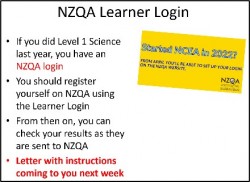 Apart from those students who studied NCEA Level 1 Science last year, Year 11 students recently received instructions on how to set up their NZQA Learner Login. It is compulsory for students, as soon as they receive their letter of instruction, to set up their Login as that provides them with the way to check their internal results and it’s the only way for them to access their NCEA examination results in mid-January next year. It is also the only way for them to access their marked examination papers.
Apart from those students who studied NCEA Level 1 Science last year, Year 11 students recently received instructions on how to set up their NZQA Learner Login. It is compulsory for students, as soon as they receive their letter of instruction, to set up their Login as that provides them with the way to check their internal results and it’s the only way for them to access their NCEA examination results in mid-January next year. It is also the only way for them to access their marked examination papers.
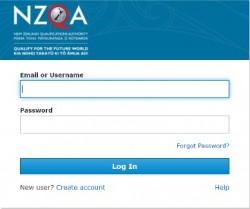 And, finally, using the Learner Login is the only way for students to order a copy of their official NCEA Record of Achievement in its pristine colour form with the NZQA letterhead showing. They will need these certificates to include them in the CV that they should be putting together for future use.
And, finally, using the Learner Login is the only way for students to order a copy of their official NCEA Record of Achievement in its pristine colour form with the NZQA letterhead showing. They will need these certificates to include them in the CV that they should be putting together for future use.
Through much of Term 2, teachers will be writing mid-year academic reports for all year levels. In those reports, teachers will provide feedback on students’ progress to date and on their achievement levels.
For NCEA subjects, achievement will be described particularly with NCEA grades which will be either final, summative internal assessment results and/or formative external assessment results which have the status of being only ‘indicative’ (obviously not final as those results are gained in the NCEA externals). While being ‘only formative’, such results still provide useful feedback on a student’s progress in meeting the requirements of the external Standard.
It will be common to see in this Report several ‘NYA’ indicators (= Not Yet Assessed) for NCEA grades because course work to date has not yet allowed a teacher to properly assess a particular Standard, internal or external.
The College academic reports are made available to you by Friday 23 June through the Community Portal. There, they are found under the ‘Documents’ tab, then ‘Student Reports’.
At this stage of the year, these reports provide a good view of how your student is progressing in terms of their attitude, effort, attendance and NCEA achievement as follows:
The subject report provides an average score which provides an indication of your student’s attitude and effort in the subject to date. At St Andrew’s College, we consider that NCEA academic achievement is not only about academic capability. It is also greatly helped by a student’s attitude towards their learning in the subject and the effort that they put in in, and outside, the class.
There is a clear correlation between a student’s attendance in class and the opportunity for high(er) academic achievement. The subject report provides an overall attendance percentage figure to date.
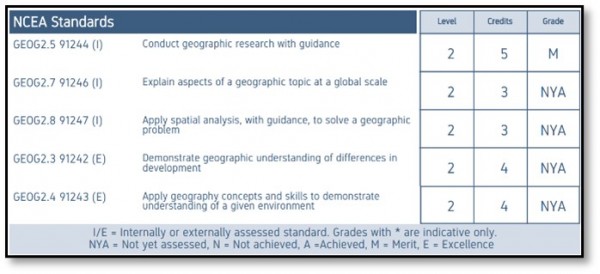 The subject report provides results for assessments in standards that make up the course. At this time of the year, it is not at all unusual to see at least a few ‘NYA’ (Not Yet Assessed) ‘grades’ in the report as there is still a significant amount of course time to go and, therefore, assessment.
The subject report provides results for assessments in standards that make up the course. At this time of the year, it is not at all unusual to see at least a few ‘NYA’ (Not Yet Assessed) ‘grades’ in the report as there is still a significant amount of course time to go and, therefore, assessment.
Teachers are allowed, and are encouraged, to provide an indicative/estimated grade in a standard that indicates how a student is progressing in a standard even if it is not fully assessed at the point of writing. These grades act as feedback on how (well) a student is progressing in the standard and are always subject to change; because there is room for change in a student’s understanding of, and performance in, a standard by the time it is fully completed in an assessment, the estimated grades are merely indicative. On the report, such grades are indicated by an ‘*’. Final summative results for internals do not have the ‘*’. Note that all external standards are only formally assessed in an end-of-year exam or in an externally assessed portfolio.
It is our belief that students must develop the skills, dispositions, and characteristics to lead their own learning both at and beyond school. Increasingly, in learning at the College, the key competencies of managing self, thinking, using language, symbols and texts, relating to others, and participating and contributing are taught alongside curriculum content and skills because they provide the students with the means to develop into an effective learner beyond being ‘only’ a student of, for example, French. Therefore, in the report, teachers are asked to comment on the student as a learner, that is, on how well they engage with their learning, how well they understand what they are learning, what strategies they successfully bring into their learning and what a student could do next to further improve as a learner in the subject. It is primarily about teachers providing meaningful feedback on students’ learning.